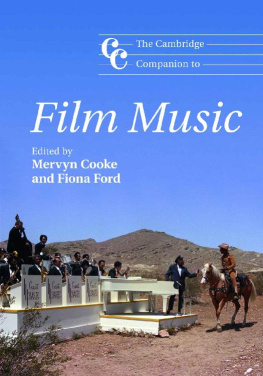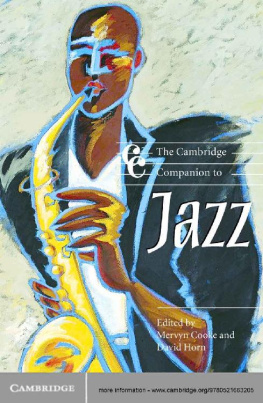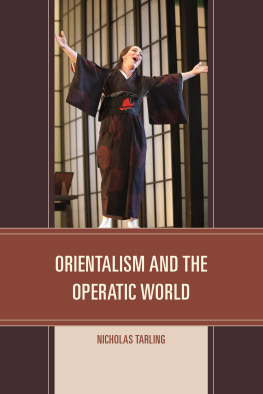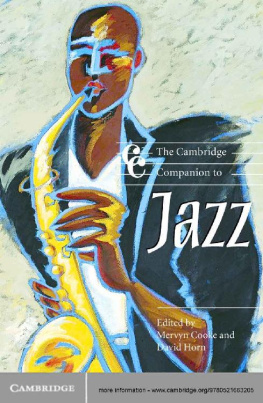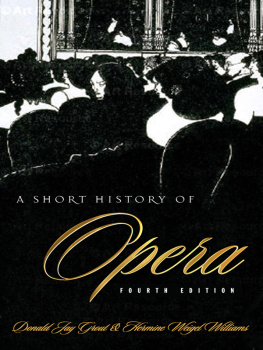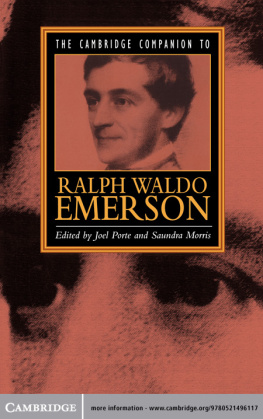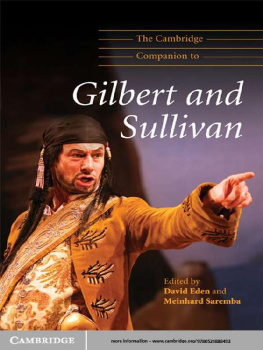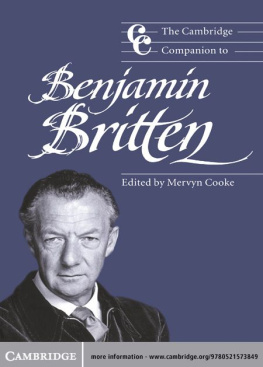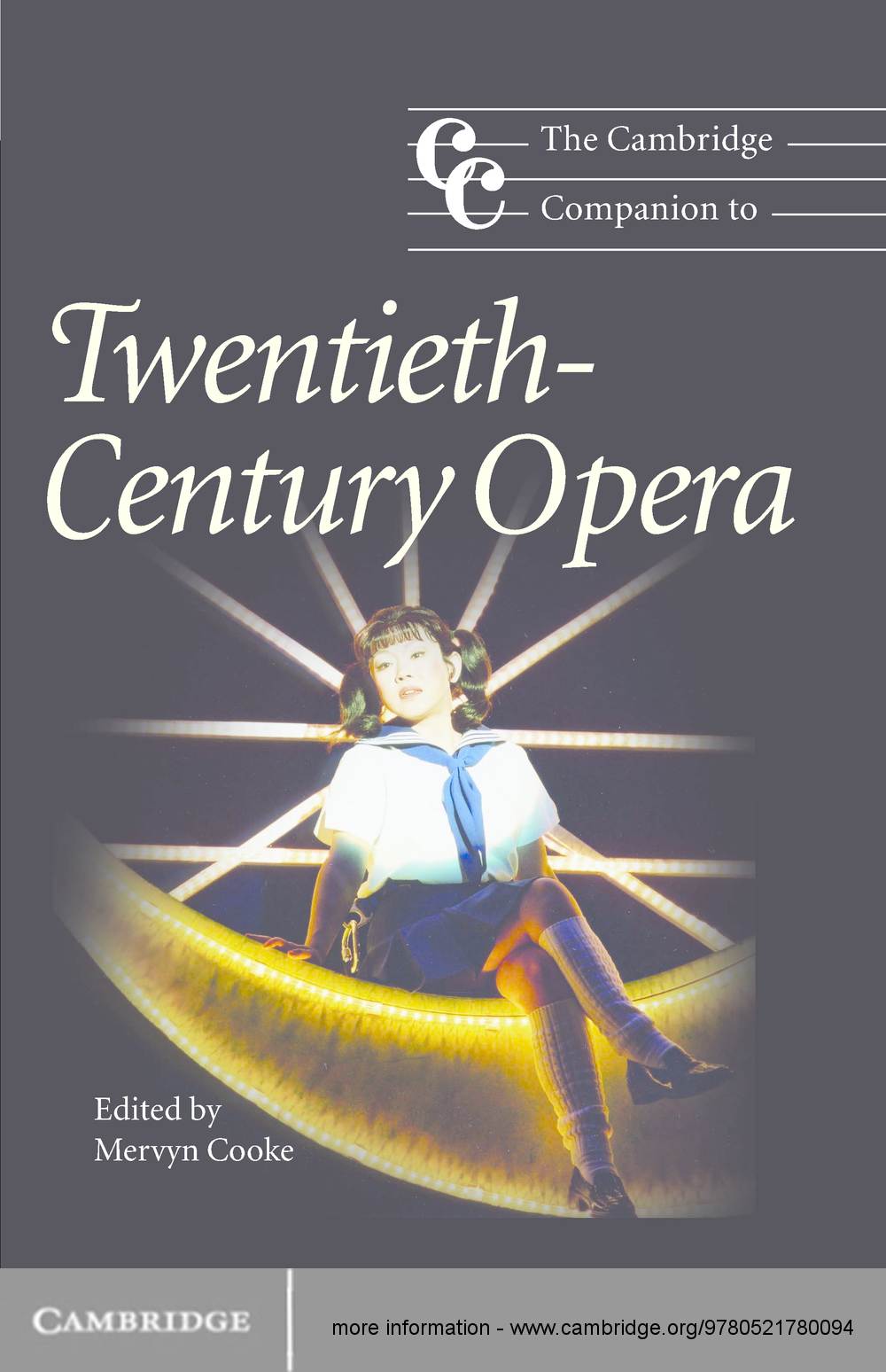Robert Adlington is Senior Lecturer in Music at the University of Nottingham. He has written widely on twentieth-century music, with a particular focus on recent British and Dutch music. His monograph The Music of Harrison Birtwistle was published by Cambridge University Press in 2000, and he has written articles on Birtwistle, Rebecca Saunders and the Australian Fluxus revivalists SLAVE PIANOS. He has published a book on Louis Andriessens De Staat (Ashgate, 2004) and is currently preparing further publications on musical life in Amsterdam in the late 1960s.
Arved Ashby is Associate Professor of Musicology at the Ohio State University. Much of his work has centered on Alban Berg and the historiography of twelve-tone music, and in 1996 he received the Alfred Einstein Award from the American Musicological Society for an article involving these subjects. He designed, edited and contributed to the recent collection The Pleasure of Modernist Music: Listening, Meaning, Intention, Ideology (University of Rochester Press, 2004). In addition to interests in modernism and popular culture, he has also explored the phenomenological, McCluhanesque correlations between Western concert music and the mass media. To this end, he is now working on a book entitled Absolute Music in the Age of Mechanical Reproduction . He wrote criticism for the American Record Guide from 1987 to 2001, and now contributes regularly to Gramophone . He also composes.
Stephen Banfield is Stanley Hugh Badock Professor of Music at the University of Bristol, having previously been Elgar Professor of Music at the University of Birmingham and, before that, lecturer, then senior lecturer in music at Keele University. He is the author of Sensibility and English Song (1985), Sondheims Broadway Musicals (1993) and Gerald Finzi (1997), and editor of Volume VI of The Blackwell History of Music in Britain (1995). His current projects include a study of Jerome Kern, an edition of Weills musical Love Life for the Kurt Weill Edition, and a history of music in the British Empire.
Rachel Beckles Willson is Senior Lecturer in Music at Royal Holloway, University of London. Her research has focused primarily on the analysis, history and performance of music in Hungary, and her work has been published in Music Analysis , Music & Letters , Contemporary Music Review , Central Europe and Slavonica . Her books include Perspectives on Kurtg (with Alan E. Williams; Guildford, 2001) and Gyrgy Kurtgs The Sayings of Pter Bornemisza opus 7 (Aldershot, 2003). She is currently completing Ligeti, Kurtg and Hungarian Music during the Cold War for Cambridge University Press.
Virgilio Bernardoni is Associate Professor of Musical Dramaturgy and of the History of Modern and Contemporary Music at the University of Bergamo, and a member of the Scientific Committee of the Centro Studi Giacomo Puccini, Lucca, for whom he edits the journal Studi Pucciniani . He is the author of numerous articles and essays on Italian opera, and on musical theory and pedagogy in the nineteenth and twentieth centuries. He has written and edited a number of volumes on the subject of fin de sicle and early twentieth-century opera in Italy: La maschera e la favola nellopera italiana del primo Novecento (1986), Puccini (1996), Suono, parola, scena. Studi e testi sulla musica italiana nel Novecento (with Giorgio Pestelli, 2003), and Linsolita forma : strutture e processi analitici per lopera italiana nellepoca di Puccini (with Michele Girardi and Arthur Groos; special issue of Studi Pucciniani , 3, 2004).
Mervyn Cooke is Professor of Music at the University of Nottingham. He studied at the Royal Academy of Music and at Kings College, Cambridge, and was for six years Research Fellow and Director of Music at Fitzwilliam College, Cambridge. His books include studies of Brittens Billy Budd and War Requiem (Cambridge University Press), a monograph Britten and the Far East (The Boydell Press), Jazz (World of Art) and The Chronicle of Jazz (both Thames & Hudson); he has also edited The Cambridge Companion to Benjamin Britten and (with David Horn) The Cambridge Companion to Jazz . He is currently writing a history of film music for Cambridge University Press, and (with Donald Mitchell and Philip Reed) is co-editor of the ongoing edition of Brittens correspondence published by Faber and Faber. He is also active as a pianist and composer, his compositions having been broadcast on BBC Radio 3 and Radio France and performed at Londons South Bank and St Johns Smith Square.


